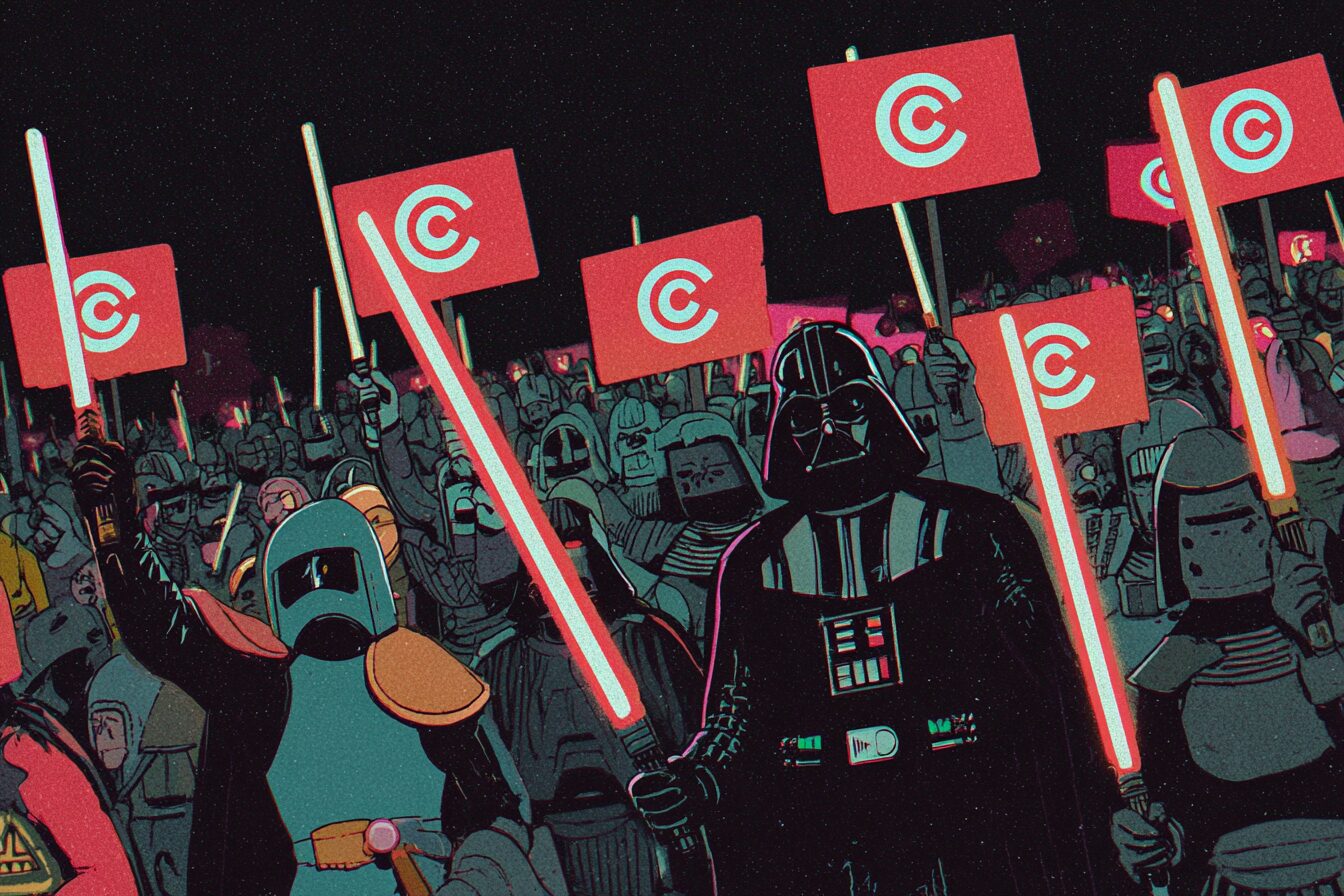A critical and philosophical look at artificial intelligence and its influence on society, culture and art. La Rivoluzione Algoritmica aims to explore the role of AI as a tool or co-creator, questioning its limits and potential in the transformation of cognitive and expressive processes.
The news of the lawsuit filed by Disney and Universal against Midjourney officially confirms what had already been evident for some time: the copyright war in the field of generative AI will be won by the major rights holders. It’s no coincidence that the heavyweights have stepped in – the same ones who gave us the extension of copyright to 70 years after the author’s death (and would have gone for 90, if they could). And they only act when they’re sure to win: in fact, they targeted a small fish, not OpenAI or others.
The signal was already clear: all the big tech companies are signing deals with major publishers. It’s ironic that these publishers now paint themselves as champions of artists, when in reality, as always, only the top executives will profit. The case of The New York Times, which sued OpenAI and then struck training data deals with Amazon, is emblematic. Journalists won’t see a windfall, but who cares – as long as they can pose as “the good guys.”
Anti-AI advocates will cheer, convinced that this puts a brake on a dangerous tool. But of course, that’s not the case. AI won’t disappear: it’ll just become more expensive and less free. Big tech will pay the big copyright holders, as is already happening. Money will flow, abundantly – but only into the usual pockets. The only ones who might breathe a sigh of relief are those with enough negotiating power to prevent their works from being used in datasets. For everyone else? Either you’ve sold your rights to a publisher, or good luck trying to sue a giant if you find your work in a training set. Copyright is an economic mechanism, not an ontological one.

Something will change in the AI world too, but not in the way some people hope. The economic model will adapt. Some companies will fall, others will be absorbed. Costs will rise – and so will bias (fewer data = more bias). But there will also be growing demand for customizable and flexible tools. That’s the direction creative AI has already been heading toward for some time.
Hardcore artist-fans will use open-source tools or pay for licenses (upfront or downstream) to generate Star Wars-style content. Those who really want to experiment will use other means: LoRA, style extraction, multimodal models, and whatever comes next.
In short: not much changes in practice. But a lot changes symbolically. The chance for a truly open AI has been lost (if it ever existed). It would’ve been enough to exempt open-source models (even commercial ones) from copyright – or at least it would’ve been a good start. But in a context where even anti-capitalists cling to copyright (a notoriously capitalist tool), it was hard to hope for that.
The upside is that we can finally archive this copyright war. If Disney/Universal/NYT/whoever paid, then everything is “by the book.” Artists are protected and compensated (Oops!). Now that copyright can no longer be used to stop AI, other criticisms will return with more force – but at least this one is put to rest, and we can work with more peace of mind. You won’t be able to make Darth Vader anymore – only Disney’s AIs or the pirate ones will.
Francesco D’Isa, trained as a philosopher and digital artist, has exhibited his works internationally in galleries and contemporary art centers. He debuted with the graphic novel I. (Nottetempo, 2011) and has since published essays and novels with renowned publishers such as Hoepli, effequ, Tunué, and Newton Compton. His notable works include the novel La Stanza di Therese (Tunué, 2017) and the philosophical essay L’assurda evidenza (Edizioni Tlon, 2022). Most recently, he released the graphic novel “Sunyata” with Eris Edizioni in 2023. Francesco serves as the editorial director for the cultural magazine L’Indiscreto and contributes writings and illustrations to various magazines, both in Italy and abroad. He teaches Philosophy at the Lorenzo de’ Medici Institute (Florence) and Illustration and Contemporary Plastic Techniques at LABA (Brescia).